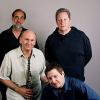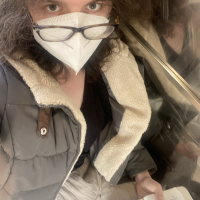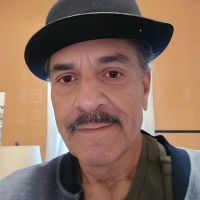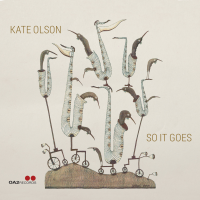Home » Jazz Musicians » Tony Williams
Tony Williams
Born in Chicago and growing up in Boston, Williams began studies with master drummer Alan Dawson at an early age and began playing professionally at the age of 13 with saxophonist Sam Rivers. Jackie McLean hired Williams at 16. At 17 Williams found considerable fame with Miles Davis, joining a group that was later dubbed Davis's "Second Great Quintet." His first album as a leader, 1964's Life Time (not to be confused with the name of his band "Lifetime," which he formed several years later) was recorded during his tenure with Davis.
Williams was a vital element of the group, called by Davis in his autobiography "the center of the group's sound". [citation needed] His inventive playing helped redefine the role of jazz rhythm section through the use of polyrhythms and metric modulation (transitioning between mathematically related tempos and/or time signatures). But perhaps his overarching achievement was in demonstrating, through his playing, that the drummer need not be relegated to timekeeping and accompaniment in a jazz ensemble; that the drummer may be free to contribute to the performance as an equal partner in the improvisation.
In 1969, he formed a trio, "The Tony Williams Lifetime," with John McLaughlin on guitar and Larry Young on organ. It was a pioneering band of the fusion movement, a combination of rock, R&B, and jazz. Their first album, Emergency!, was largely rejected by the jazz community at the time of its release. However, Miles Davis was so impressed with the album and its highly experimental direction that he asked to head the group as his own; Williams declined.[citation needed] Nowadays, Emergency! is considered by many to be a fusion classic.
After McLaughlin's departure, and several more albums, Lifetime disbanded. In 1975, Williams put together a band he called "The New Tony Williams Lifetime," featuring bassist Tony Newton, pianist Alan Pasqua, and English guitarist Allan Holdsworth, which recorded two albums for Columbia Records, Believe It and Million Dollar Legs respectively.
In mid 1976, Williams was a part of a reunion of sorts with his old Miles Davis band compatriots, pianist/keyboardist Herbie Hancock, bassist Ron Carter and tenor saxophonist Wayne Shorter. Miles backed out of the reunion at the last minute and was replaced by Freddie Hubbard. The record was later released as V.S.O.P. (which stood for a "Very Special OneTime Performance") and was highly instrumental in increasing the popularity of acoustical jazz. The group went on to tour and record for several years, releasing a series of live albums under the name "V.S.O.P." or "The V.S.O.P. Quintet." (The CD reissues of these albums are sold under Herbie Hancock's name - making things a bit confusing since the original V.S.O.P. album, which alone was a Hancock album, has never been released on CD.)
Read moreTags
Miles In France 1963 & 1964: The Bootleg Series Vol. 8

by Doug Collette
At the very same time Beatlemania was slowly but surely beginning to engulf the globe, Miles Davis was inexorably proceeding toward what was the most adventurous music of his career. Miles In France -The Bootleg Series Vol. 8 captures a group of musicians led by “The Man with the Horn" on the threshold of forming what is referred to as his second great quintet, then actually coalescing into that stellar outfit. And the drama within that designation rapidly ...
Continue ReadingEric Dolphy: Outward Bound To Out To Lunch Revisited

by Stefano Merighi
Il valore incalcolabile dell'opera di Eric Dolphy sta passando un po' in secondo piano nel nostro tempo di ascolti rapidi e deconcentrati. Ben venga allora questa edizione, anche se rimane la perplessità dell'accorpare due dischi che pochissimo hanno in comune e che sono comunque ancora a disposizione negli ottimi originali. Dal 1960 al 1964 (anno della scomparsa), Dolphy ha attraversato un mondo sonoro denso, sfaccettato, rimanendo se stesso sia accanto a Mingus che a Russell, sia nelle sabbie ...
Continue ReadingThe Electric Years Box Set

by Mike Jurkovic
In a year that has brought us a true bounty of previously unheard majesty including Evenings at the Village Gate: John Coltrane with Eric Dolphy (Impulse!), and Bill Evans; Treasures: Solo, Trio & Orchestra Recordings from Denmark (1965-1969), (Elemental Music) it is only fitting that Miles Davis get his due. And in a very, very big way. Seared into modern memory, modern art, the music presented on the gloriously massive, eleven LP set Miles Davis: The Electric Years ...
Continue ReadingJazz + Rock = ?

by Jerome Wilson
This show, from September 2021, focuses on various combinations of rock and jazz such as jazz musicians experimenting with rock rhythms, and rock bands leaning into horns and improvisation. Artists heard on the program include the Tony Williams Lifetime, Quicksilver Messenger Service, Dave Holland, Soft Machine, Spanky and Our Gang, and Elton Dean.Playlist Henry Threadgill Sextett “I Can't Wait Till I Get Home" from The Complete Novus & Columbia Recordings of Henry Threadgill & Air (Mosaic) 00:00 Brian ...
Continue ReadingEric Dolphy: Outward Bound To Out To Lunch Revisited

by John Eyles
Ask any jazz aficionado for their favourite jazz albums of the '60s and the chances are that, alongside such decade-defining choices as Jimmy Giuffre's Free Fall (Columbia, 1963), John Coltrane's A Love Supreme (Impulse, 1965), Andrew Hill's Point of Departure (Blue Note, 1965) and Albert Ayler's Spiritual Unity (ESP, 1965), they will select Eric Dolphy's Out to Lunch (Blue Note, 1964). Now the Dolphy classic has been reissued on Ezz-thetics alongside one of his older recordings, Outward Bound (Prestige, 1964), ...
Continue ReadingMiles Davis Quintets: Stockholm 1967 & 1969 Revisited

by Mark Corroto
Let me ask you, how many versions of Miles Davis do you recognize? Let us employ the word 'recognize' in terms of both, to identify and to approve. Listeners new to the world of Miles would be hard pressed to associate the artist seen and heard with Charlie Parker at New York's Three Deuces in 1947 with the same man performing in Montreux, Switzerland some forty years later. Both his look and his sound had changed, making him unrecognizable to ...
Continue ReadingA Nostalgic Journey With Fusion From The '70s

by Len Davis
A nostalgic journey to the '70s with Herbie Hancock, Brand X, Soft Machine, Gong, The Eleventh House Larry Coryell, Michal Urbaniak, Brecker Brothers, Tony Williams, Billy Cobham and Jean-Luc Ponty.PlaylistHerbie Hancock “Sansho Shima" from Secrets (Record Label) 00:00Brand X “Malaga Virgen" from Livestock (Charisma) 05:39Soft Machine “Out Of Season" from Softs (Harvest) 11:24Gong “Boring" from Expresso 2 (Virgin) 17:01Larry Coryell “Yin Yang" from Aspects (Arista) 22:43Michal Urbaniak “Bahamian Harvest" from Fusion (MPS) 28:33The Brecker Brothers “Squids" from Heavy ...
Continue ReadingJazz Musician of the Day: Tony Williams

Source:
Michael Ricci
All About Jazz is celebrating Tony Williams' birthday today!
Born in Chicago and growing up in Boston, Williams began studies with master drummer Alan Dawson at an early age and began playing professionally at the age of 13 with saxophonist Sam Rivers. Jackie McLean hired Williams at 16. At 17 Williams found considerable fame with Miles Davis, joining a group that was later dubbed Davis's “Second Great Quintet." His first album as a leader, 1964's Life Time (not to be ...
read more
Jazz Musician of the Day: Tony Williams

Source:
Michael Ricci
All About Jazz is celebrating Tony Williams' birthday today!
Born in Chicago and growing up in Boston, Williams began studies with master drummer Alan Dawson at an early age and began playing professionally at the age of 13 with saxophonist Sam Rivers. Jackie McLean hired Williams at 16. At 17 Williams found considerable fame with Miles Davis, joining a group that was later dubbed Davis's “Second Great Quintet." His first album as a leader, 1964's Life Time (not to be ...
read more
Jazz Musician of the Day: Tony Williams

Source:
Michael Ricci
All About Jazz is celebrating Tony Williams' birthday today!
Born in Chicago and growing up in Boston, Williams began studies with master drummer Alan Dawson at an early age and began playing professionally at the age of 13 with saxophonist Sam Rivers. Jackie McLean hired Williams at 16. At 17 Williams found considerable fame with Miles Davis, joining a group that was later dubbed Davis's “Second Great Quintet." His first album as a leader, 1964's Life Time (not to be ...
read more
Jazz Musician of the Day: Tony Williams

Source:
Michael Ricci
All About Jazz is celebrating Tony Williams' birthday today!
Born in Chicago and growing up in Boston, Williams began studies with master drummer Alan Dawson at an early age and began playing professionally at the age of 13 with saxophonist Sam Rivers. Jackie McLean hired Williams at 16. At 17 Williams found considerable fame with Miles Davis, joining a group that was later dubbed Davis\'s “Second Great Quintet." His first album as a leader... Read more.
Place our Musician of ...
read more
Jazz Musician of the Day: Tony Williams

Source:
Michael Ricci
All About Jazz is celebrating Tony Williams' birthday today!
Born in Chicago and growing up in Boston, Williams began studies with master drummer Alan Dawson at an early age and began playing professionally at the age of 13 with saxophonist Sam Rivers. Jackie McLean hired Williams at 16. At 17 Williams found considerable fame with Miles Davis, joining a group that was later dubbed Davis\'s “Second Great Quintet." His first album as a leader... Read more.
Place our Musician of ...
read more
Jazz Musician of the Day: Tony Williams

Source:
Michael Ricci
All About Jazz is celebrating Tony Williams' birthday today!
Born in Chicago and growing up in Boston, Williams began studies with master drummer Alan Dawson at an early age and began playing professionally at the age of 13 with saxophonist Sam Rivers. Jackie McLean hired Williams at 16. At 17 Williams found considerable fame with Miles Davis, joining a group that was later dubbed Davis\'s “Second Great Quintet." His first album as a leader... Read more.
Place our Musician of ...
read more
Jazz Musician of the Day: Tony Williams

Source:
Michael Ricci
All About Jazz is celebrating Tony Williams' birthday today!
Born in Chicago and growing up in Boston, Williams began studies with master drummer Alan Dawson at an early age and began playing professionally at the age of 13 with saxophonist Sam Rivers. Jackie McLean hired Williams at 16. At 17 Williams found considerable fame with Miles Davis, joining a group that was later dubbed Davis\'s “Second Great Quintet." His first album as a leader... Read more.
Place our Musician of ...
read more
Jazz Musician of the Day: Tony Williams

Source:
Michael Ricci
All About Jazz is celebrating Tony Williams' birthday today! Born in Chicago and growing up in Boston, Williams began studies with master drummer Alan Dawson at an early age and began playing professionally at the age of 13 with saxophonist Sam Rivers. Jackie McLean hired Williams at 16. At 17 Williams found considerable fame with Miles Davis, joining a group that was later dubbed Davis\'s “Second Great Quintet." His first album as a leader... Read more. Place our Musician of ...
read more
Music Education Monday: A master class with Tony Williams

Source:
St. Louis Jazz Notes by Dean Minderman
Drummer Tony Williams burst on to the international jazz scene in sensational fashion, getting hired when he was just 17 years old by Miles Davis to join what would become known as the trumpeter's “Second Great Quintet." Starting in 1963, that band become one of the most popular and critically acclaimed jazz groups of the decade, stretching the boundaries of the music ever further over the course of six years, more than a dozen recordings, and hundreds of gigs. Williams ...
read more
Jazz Musician of the Day: Tony Williams

Source:
Michael Ricci
All About Jazz is celebrating Tony Williams' birthday today! Born in Chicago and growing up in Boston, Williams began studies with master drummer Alan Dawson at an early age and began playing professionally at the age of 13 with saxophonist Sam Rivers. Jackie McLean hired Williams at 16. At 17 Williams found considerable fame with Miles Davis, joining a group that was later dubbed Davis\'s “Second Great Quintet." His first album as a leader... Read more. Place our Musician of ...
read more














































2013_M_Gradwohl_-1.jpg)


































































































